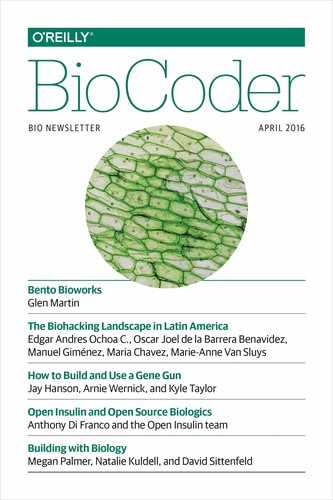Foreword
If you’re in San Francisco, visiting the Exploratorium is a must. It is a museum that focuses on education, interaction and experience; the exhibits are for everyone, no matter what age or area of interest. At the Exploratorium, participants can experiment with lighting, sound, animation, living systems, hearing, social behavior, circuits, vision, tides, feelings, and other categories, all interactive and educational. In addition to the in-house exhibits, there are resources on their website for exploration at home or at institutions.
The richness of experiences like the Exploratorium, and the way these experiences shape participation in science, is why it is so wonderful to learn about Building with Biology. Building with Biology is a program designed to facilitate public engagement with synthetic biology, which is a field that is still evolving. What tools and systems can be built? How will they be designed? How can the tools be used and what are the implications of their use? How will these tools affect society? Who contributes to the conversation? Building with Biology aims to start a conversation around these and related questions through educational exercises. Physical kits containing hands-on activities are being sent to science education sites (nature centers, museums, schools), as well as training materials to help foster interest in synthetic biology. To learn more about the six activities and how they are helping to open the dialogue, read “Building with Biology” on page 41. And visit one (or more) of their programs this summer.
BioCoder’s goals are similar: we want to spark conversations. In this issue, we have an article on open source biologics, a topic that needs public engagement to define what open source biology means, what should be engineered, and what are the safety concerns. There are articles on making your own gene gun (allowing you to genetically engineer plants at home), Bento Bioworks (a portable DIY biology laboratory), and a revolutionizing neuroimaging technology. In addition, there is a review of IndieBio Demo Day and an introduction to the biohacking community in Latin America. Public engagement is imperative in these uncharted research areas that have seemingly limitless potential. We would love to hear from you and what you think about these new endeavors, technologies, and open applications. And of course, let us know about any topics we should cover—and particularly anything that you’d like to write about.
